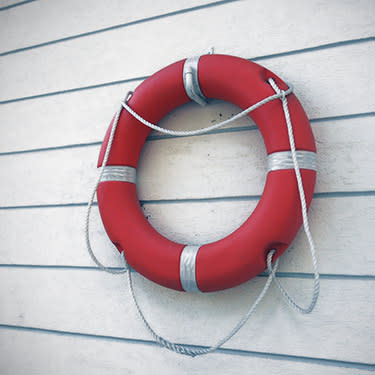Investing 101: What You Need to Know
Start Here

New investors are often overwhelmed by all the options: Should you put your money in stocks, bonds, ETFs, REITs, or mutual funds? Should you work with a financial planner or try to go it alone? And how do you know what to expect from your money?
Follow these eight steps to get started on the right path.
What Investing Is (and Isn’t)

Some new investors confuse “investing” with “trading” or “saving.” But it’s not the same. “Saving is the act of putting money aside for future use,” says Ryan Huard, CFP, vice president of personal investment services at Sentinel Benefits & Financial Group in Wakefield, MA. Because savings accounts are FDIC insured, there’s no risk associated with simply saving. “It’s imperative that everyone saves over their lifetime,” Huard says.
Investing is also distinct from trading or gambling, says Jane Edmondson, registered investment advisor at EQM Capital in San Diego. Investing is for the long term and is usually tied to a tangible objective such as growing wealth for retirement. In contrast, “trading is about making fast trades [holding investments for only weeks or months rather than years] in search of short-term profits,” she says. “While all investing involves some amount of risk, there is a big difference between investing and gambling. Buying a stock on a hunch is gambling. Investing in several quality companies with exposure to different segments of the economy is investing. Successful investing requires a plan.”
Make Sure You’re Covered

Before investing, make sure you have an emergency fund that can cover three to six months of expenses.
Once you have that in place, think about what type of investment account you may want. Many brokerage firms offer opportunities with various levels of advisory. For instance, if you buy shares in actively managed funds, your investment will be managed by a manager or team of managers. Index funds, on the other hand, are passively managed, which means their portfolios mirror a market index.
You can also automate the process with new online tools such as Acorns and Betterment: You deposit funds into an online account and the service automatically buys investments in a diversified portfolio based on your preferences.
Don’t Wait — Set Goals Now

You don’t need a lot of money to start investing. When you start early, “time is on your side,” says Peter Mallouk, CFP and owner of Creative Planning, Inc. in Leawood, KS. “Investing $100 per month from age 25 to 35 is far more powerful than $200 per month from 55 to 65. Compounding starts to work for you earlier.” Mallouk recommends starting with a low-cost, well-diversified index fund such as Vanguard’s S&P 500 mutual fund.
“Investing is not one size fits all,” says Elle Kaplan, CEO and founder of New York–based LexION Capital. “Your investment strategy should be tailored to your goals and needs. Your age, risk tolerance, and financial situation are all factors that affect your investment strategy, but investment advice should never be formulaic.” Basically, for long-term goals, higher-risk investments such as stocks may offer better returns, and for shorter-term goals, lower-risk investments may be a safer bet.
Generally, short-term goals are those that are at most five years down the road — think buying a house or remodeling your home. A long-term goal is something further away, like retirement or your kids’ college education. A financial planner can help you match a strategy to meet your goals.
You should also write down your goals: It gives you a significantly higher chance of reaching them, Huard says. “Without a goal in mind, investors are just investing blindly, and that may lead to them investing incorrectly,” he says.
Huard recommends separate accounts for each goal, or at least a separate account for goals with the same time horizon, to avoid unintended losses. For example, use an IRA or 401(k) for retirement and taxable brokerage accounts for shorter-term goals.
Choose Investments Carefully

If your employer sponsors a retirement plan, that’s the best place to start investing, says Robert Farrington of TheCollegeInvestor.com. Your company’s 401(k) or 403(b) will likely automate the process of investing because your contribution will be deducted from your paycheck. If your employer offers a matching contribution, that means the company will match your contributions up to a certain percentage of your salary. Make sure you invest at least the amount necessary to get the full match. Otherwise, you’re turning away free money. In 2015, employees can contribute up to $18,000 in a 401(k) account.
Next, consider an individual retirement account, specifically a Roth IRA, Farrington says. Individuals who earn less than $116,000 and married couples who earn less than $183,000 can contribute up to $5,500 per year in a Roth IRA before paying taxes. “That money grows tax free until retirement,” Farrington says.
After maxing out your 401(k) and Roth IRA, consider a regular brokerage account. “All your transactions can be taxable if you make money,” Farrington says. “But if you're already maxing out your retirement accounts, this is a good way to go.”
How to invest the money in your brokerage account? Most experts suggest starting with low-load mutual funds — you pay no up-front fees when buying the fund but may pay sales fees if you sell it within a certain amount of time. They also recommend low-fee ETFs, with average fees of about 0.5 percent, “to gain broad exposure to stocks, bonds, and international markets,” Edmondson says.
Don’t Invest Everything and Be Patient

While you don’t have to have a lot of extra money to invest, “it’s important that people don’t invest every last dollar to their names,” Huard says.
“With investing comes risk, and that is why the time horizon is so important when choosing your investments,” Huard explains. “Generally, the longer the time horizon, the more growth oriented you can be. Growth-oriented investments tend to have more volatility, or ups and downs over time. When it comes to an emergency situation, you have no idea when that will come. You cannot afford to have volatile investments if you may need the money, say, tomorrow.” Cash for emergencies should be kept in savings accounts, money market funds, or short-term CDs.
If you want to be successful as an investor, expect to commit to a long-term strategy. There are no get-rich-quick schemes. “Many investors change their strategy ... before the strategy has time to take effect,” says Jamie Ebersole, CFP, owner of Ebersole Financial in Wellesley Hills, MA. “Investors should have a minimum five-year time horizon for any new investing program. Short-term market movements can create all sorts of havoc. It is only in the longer term that you will see the benefits of the strategy.”
To stick to the strategy, Ebersole says to avoid watching CNBC every day, and don't check your stock tickers more than weekly. But no strategy is perfect, so review yours yearly “to make sure it is working and to make any needed corrections,” he says.
Consider Expert Help

If you seek help from a financial pro, make sure you “understand the difference between a broker, who is paid commission for recommending particular investments, and a fiduciary, who is legally required to act in your best interests,” Kaplan says. “When you interview potential financial advisors, ask, ‘Do you hold a Series 7 license?’ If the answer is yes, then that person is a broker, no matter their title.”
One of the most common mistakes new investors make is hiring advisors who sell them investments that have high commissions and are not necessarily the best investments for them, Mallouk says. For instance, that might include “using insurance as a savings vehicle, buying commissionable mutual funds, or funds owned by their parent company,” he says.
Don’t Forget to Save

While investing early and consistently can reap great rewards, it’s no substitute for saving. Ebersole recommends always saving 20 percent of your earnings. “Most people will not get rich from investing in the markets,” he says. “A regular savings plan that can take advantage of the long-term performance of equity markets will help you reach your goals.”
While the markets are always a little unpredictable, frequent and timely saving is always predictable. “The best investors in the world can't beat a good saver,” says Matthew Cosgriff, financial advisor at KDV Wealth Management in Minneapolis. “Beginning investors should always focus on doing their best to save early and often.”
Educate Yourself

Investors who take an interest in their investments and monitor their performance (in a non-manic way) are likely to be more successful over time. If you’re going to invest, take the time to learn about what you’re doing and learn to do it well. “Read a few investment books to understand how the markets work,” Ebersole says. He recommends A Random Walk Down Wall Street by Burton Malkiel and The Intelligent Investor by Benjamin Graham.
And remember: Investing doesn’t have to be a chore. “It’s fun to follow the stock market, listen to the pundits on TV, and develop your own investment ideas,” Ebersole says. “Having a sound strategy, a good savings plan, and a desire to learn can make investing a great hobby if you put in the time.”
You Might Also Like:
Can These Robots Make You Rich?
5 Common — and Costly — Investing Mistakes
Are You Investing as Much as You Should?

